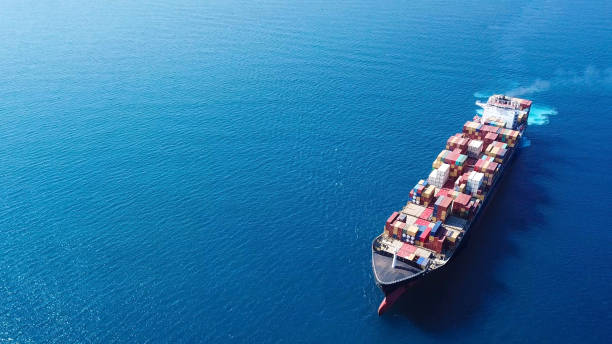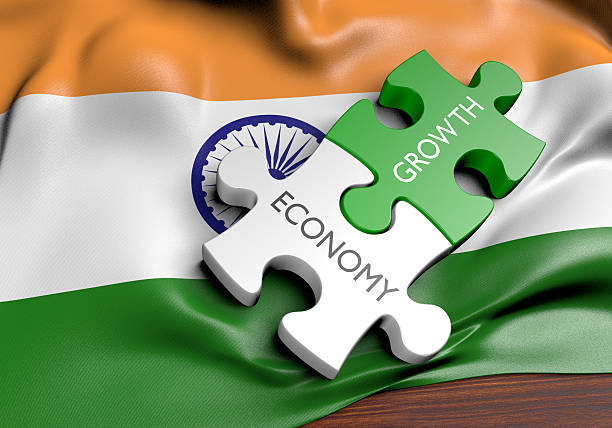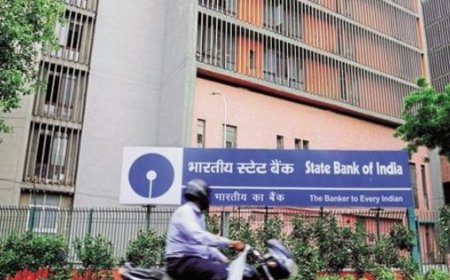The Blue Economy: A Pathway to Sustainable Growth for India
Unlocking Ocean Potential: Opportunities, Challenges, and India's Strategic Imperatives

The "Blue Economy" is a concept that has gained significant traction in recent years, especially for maritime nations like India. It represents a shift from the traditional "ocean economy" to a more sustainable and holistic approach to using ocean resources.
Here's a detailed breakdown of the Blue Economy:
What is the Blue Economy?
At its core, the Blue Economy is defined as the sustainable use of ocean resources for economic growth, improved livelihoods, and jobs, while preserving the health of ocean ecosystems.
It's not just about exploiting marine resources, but about integrating economic development with social inclusion and environmental sustainability. It recognizes that the health of the oceans is intrinsically linked to the well-being of coastal communities and the planet as a whole.
Key Components and Sectors:
The Blue Economy encompasses a wide range of established and emerging sectors:
1. Traditional Sectors:
* Fisheries and Aquaculture: Sustainable fishing practices, fish farming, and seafood processing.
* Maritime Transport and Shipping: Ports, logistics, shipbuilding, and maritime trade.
* Coastal and Marine Tourism: Ecotourism, cruise tourism, and recreational activities.
* Offshore Oil and Gas: While traditional, the focus is now on responsible exploration and transitioning to cleaner energy.
2. Emerging and Innovative Sectors:
* Renewable Ocean Energy: Offshore wind, tidal, wave, and ocean thermal energy conversion (OTEC).
* Marine Biotechnology and Bioprospecting: Research and development of new drugs, enzymes, and other products from marine organisms.
* Seabed Extractive Activities: Sustainable mining of deep-sea minerals (with careful environmental considerations).
* Desalination: Producing freshwater from seawater.
* Coastal Protection and Climate Change Mitigation: Nature-based solutions like mangrove restoration, coastal adaptation measures, and "blue carbon" initiatives (carbon sequestration in coastal and marine ecosystems).
* Marine Research and Development: Advancing scientific understanding of oceans.
* Waste Management: Particularly addressing marine plastic pollution.
Why is the Blue Economy Important?
- Economic Growth: Oceans offer immense potential for generating revenue, creating jobs, and boosting GDP. The global ocean economy is already valued at trillions of dollars annually.
- Food Security: Sustainable fisheries and aquaculture are vital for feeding a growing global population.
- Livelihood Generation: Millions of people worldwide depend on ocean-related activities for their livelihoods, especially in coastal communities.
- Environmental Sustainability: It emphasizes protecting biodiversity, mitigating climate change (oceans are major carbon sinks), and reducing pollution.
- Resource Diversification: Provides new sources of energy, minerals, and other valuable resources, reducing reliance on land-based ones.
- Strategic Importance: For countries with long coastlines, the Blue Economy enhances geopolitical influence and maritime security.

Blue Economy in India:
India, with its vast coastline (over 7,500 km), 12 major ports, and an Exclusive Economic Zone (EEZ) of 2.02 million sq km, has immense potential for a thriving Blue Economy. It's considered a crucial pillar for India's future economic growth and sustainable development.
Opportunities for India:

- Fisheries & Aquaculture: India is the world's second-largest fish producer. Sustainable practices and modern technology can further boost this sector.
- Maritime Trade & Shipping: Modernization of ports (Sagarmala project), development of coastal shipping, and inland waterways can enhance trade efficiency.
- Coastal Tourism: Developing sustainable ecotourism, cruise tourism, and beach-based activities.
- Ocean Energy: Significant potential for offshore wind, tidal, and wave energy, especially along its long coastline.
- Deep Ocean Mission (DOM): India's ambitious mission to explore deep-sea resources for minerals, energy, and marine biodiversity, including the development of manned submersibles (MATSYA 6000).
- Marine Biotechnology: Research into marine organisms for pharmaceuticals, chemicals, and industrial enzymes.
- Coastal Economic Zones (CEZs): Planned development of coastal regions to foster marine-related industries.
- Employment Generation: The blue economy can create millions of new jobs across various sectors.
Challenges for India:

- Environmental Degradation: Marine pollution (plastic, industrial waste, sewage), overfishing, habitat destruction (mangroves, coral reefs), and oil spills threaten marine ecosystems.
- Climate Change Vulnerability: Rising sea levels, ocean acidification, and increasing frequency of extreme weather events (cyclones) threaten coastal communities and infrastructure.
- Lack of Infrastructure: Inadequate port infrastructure, limited cold storage facilities for fisheries, and insufficient connectivity to coastal areas.
- Technological Gaps: Need for advanced technology in deep-sea exploration, marine biotechnology, and renewable ocean energy.
- Skill Development: Requirement for a skilled workforce in emerging blue economy sectors.
- Regulatory Framework & Governance: Need for robust and integrated policies, better enforcement, and inter-agency coordination.
- Maritime Security: Threats from piracy, illegal fishing, and transnational crimes in the Indian Ocean Region.
- Data and Research: Insufficient data and scientific research to fully understand and sustainably manage ocean resources.
- Funding: Securing adequate and sustainable financing for blue economy projects.
Government Initiatives in India:

- Deep Ocean Mission (DOM)
- Sagarmala Project
- O-SMART Scheme (Ocean Services, Modelling, Application, Resources and Technology)
- Pradhan Mantri Matsya Sampada Yojana (PMMSY)
- Integrated Coastal Zone Management Plan
- National Fisheries Policy
- Focus on Blue Economy 2.0 in recent budgets, emphasizing climate-resilient activities and sustainable development in coastal areas.
- Participation in international forums like G20 (e.g., Chennai High-Level Principles for Blue/Ocean-based Economy).
The Blue Economy offers India a significant pathway for sustainable economic development, leveraging its unique maritime position and vast ocean resources while ensuring ecological balance and the well-being of its coastal populations.









































































































































































































